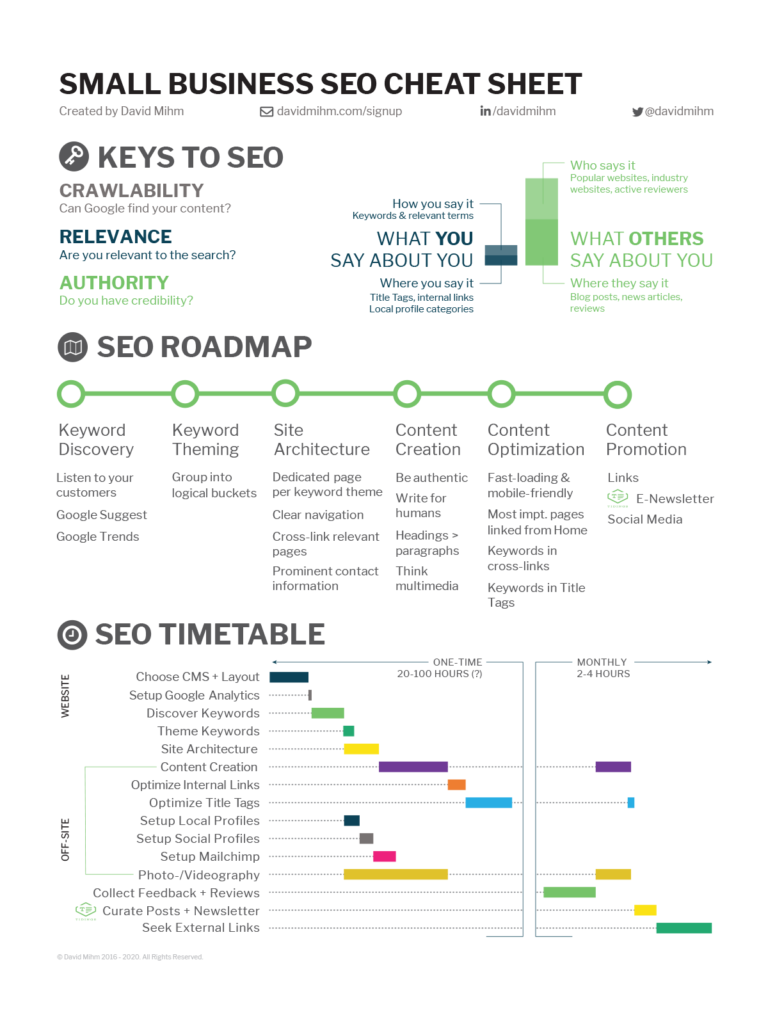The SEO Cheat Sheet for Small Businesses
A plan of attack for businesses without an in-house marketer
INTRO
Over the past seven years, I’ve been honored to be involved with two local organizations:
Mercy Corps Northwest, a non-profit which helps non-traditional small business owners with access to capital, education and ongoing mentorship (among many other programs)
Prosper Portland, our city’s economic development arm, and specifically its Mercatus program which elevates and connects entrepreneurs of color to a wide variety of startup and ongoing business resources
They’ve been the most inspiring engagements of my career, helping entrepreneurs in our community get their businesses off the ground, and in some cases build on their already-considerable successes.
WHERE SEO FITS IN THE LOCAL MARKETING STACK
Through the course of these engagements, I found myself giving nearly identical marketing prescriptions to multiple entrepreneurs, which prompted me to develop the Local Marketing Stack. Of course, I personalize my advice to each business owner, depending on how long they’ve been in business, the resources (both time and $$) they’re able to commit to marketing, and any number of different factors.
But SEO — Search Engine Optimization — is consistently one of the most interesting marketing topics among these entrepreneurs, and with good reason. Most have really small marketing budgets (as in, so small that most agencies in the SEO industry wouldn’t even work with them), and while SEO takes a lot of “sweat equity,” it remains one of the cheapest ways to promote your business, in terms of financial expense.
With that in mind I decided to develop a zoomed-in guide for the SEO “stop” on the Local Marketing Stack roadmap.
WHO IS THIS GUIDE FOR?
This guide defines a small business as any company that has between 0-1 in-house marketers. There will be some variation in the SEO Timetable I outline depending on a business’s category (for example, a restaurant may need to spend far more time on reviews and far less time on content creation than a business litigation law firm), but it should be in the ballpark for most businesses.

